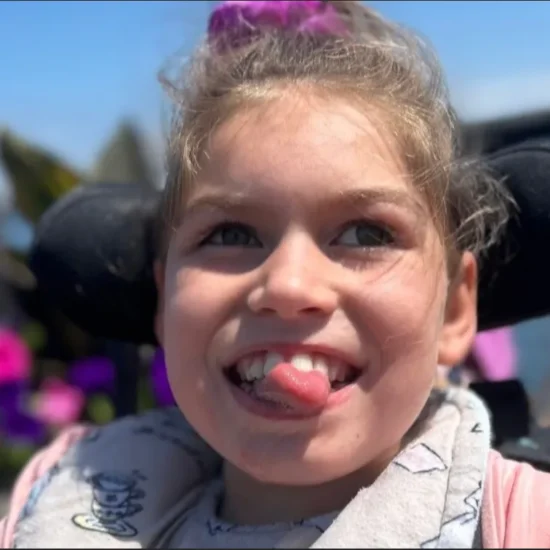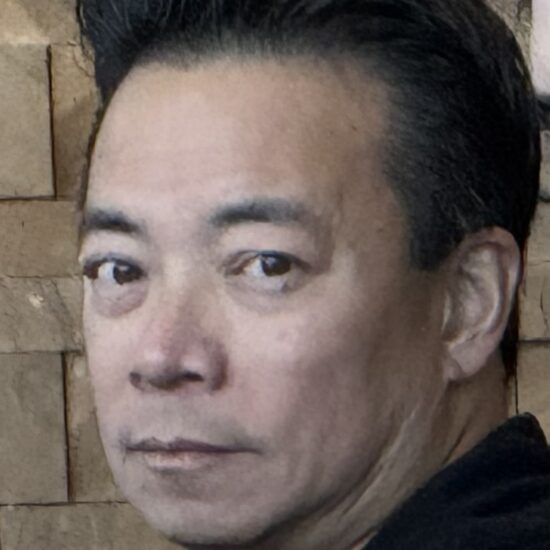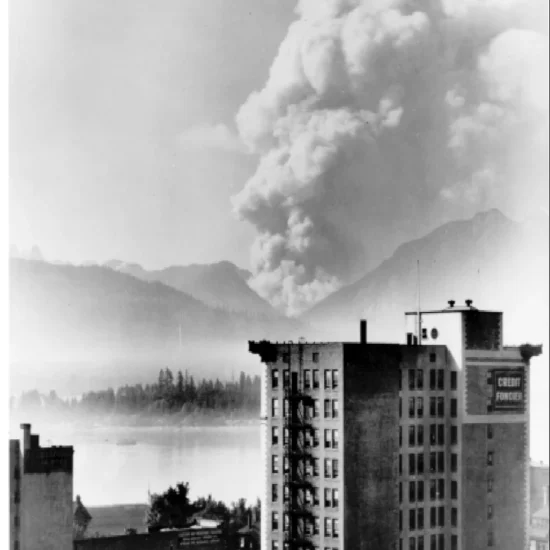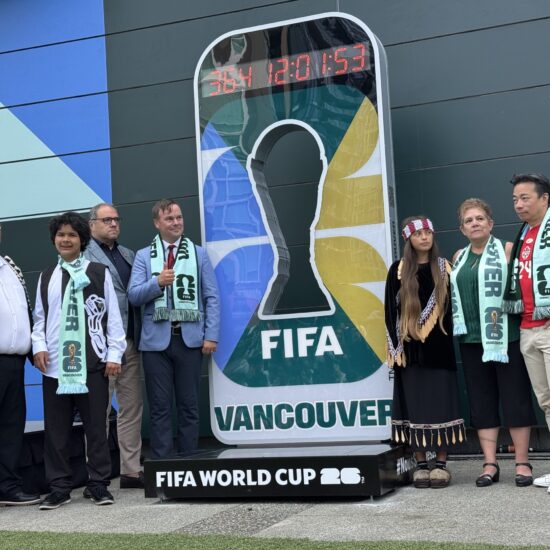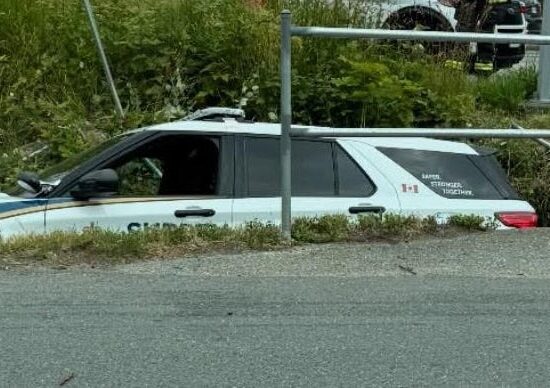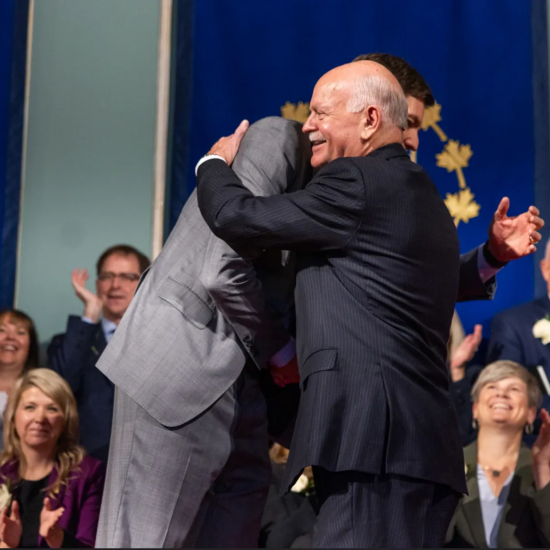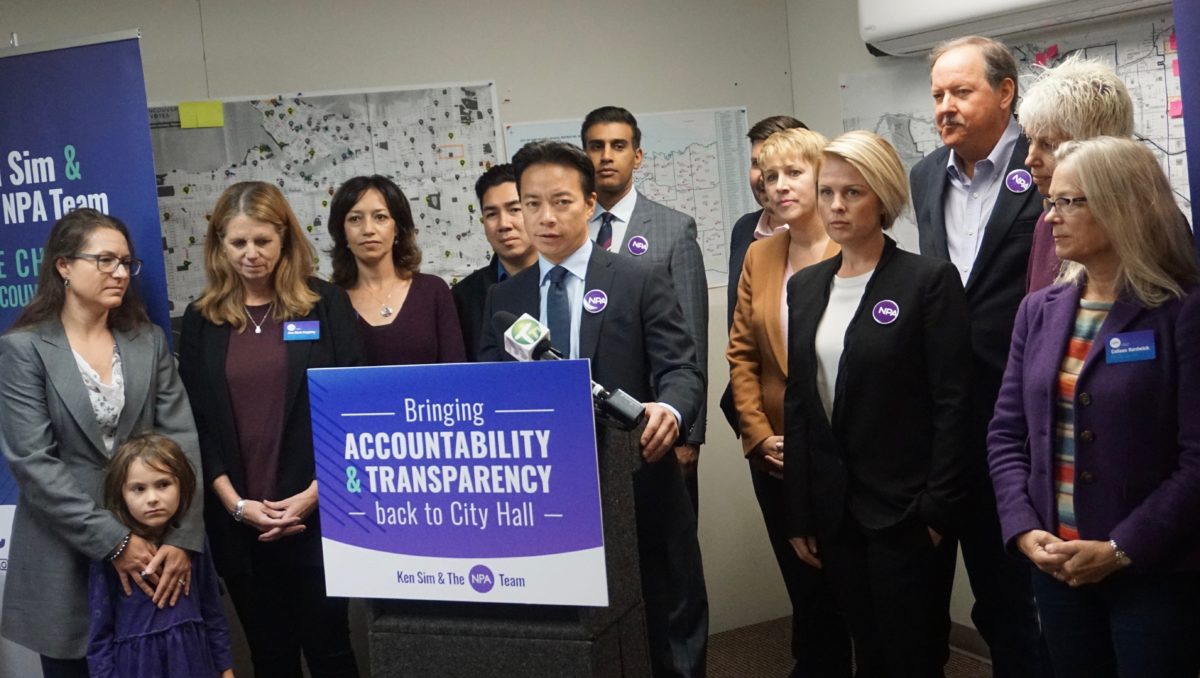
Bob Mackin
In Vancouver, will a left-wing split or right-wing split determine the successor to Mayor Gregor Robertson?
Former Burnaby NDP MP Kennedy Stewart leads opinion polls and he boasts a big labour-endorsed slate of candidates handpicked from COPE, OneCity, Vision Vancouver and the Vancouver Greens.
Ex-Vision Vancouver board member Shauna Sylvester could be Stewart’s biggest obstacle and NPA leader Ken Sim’s best ally. Newcomer David Chen of ProVancouver, with his thoughtful policy platform, could also be a spoiler, grabbing votes from both right and left.
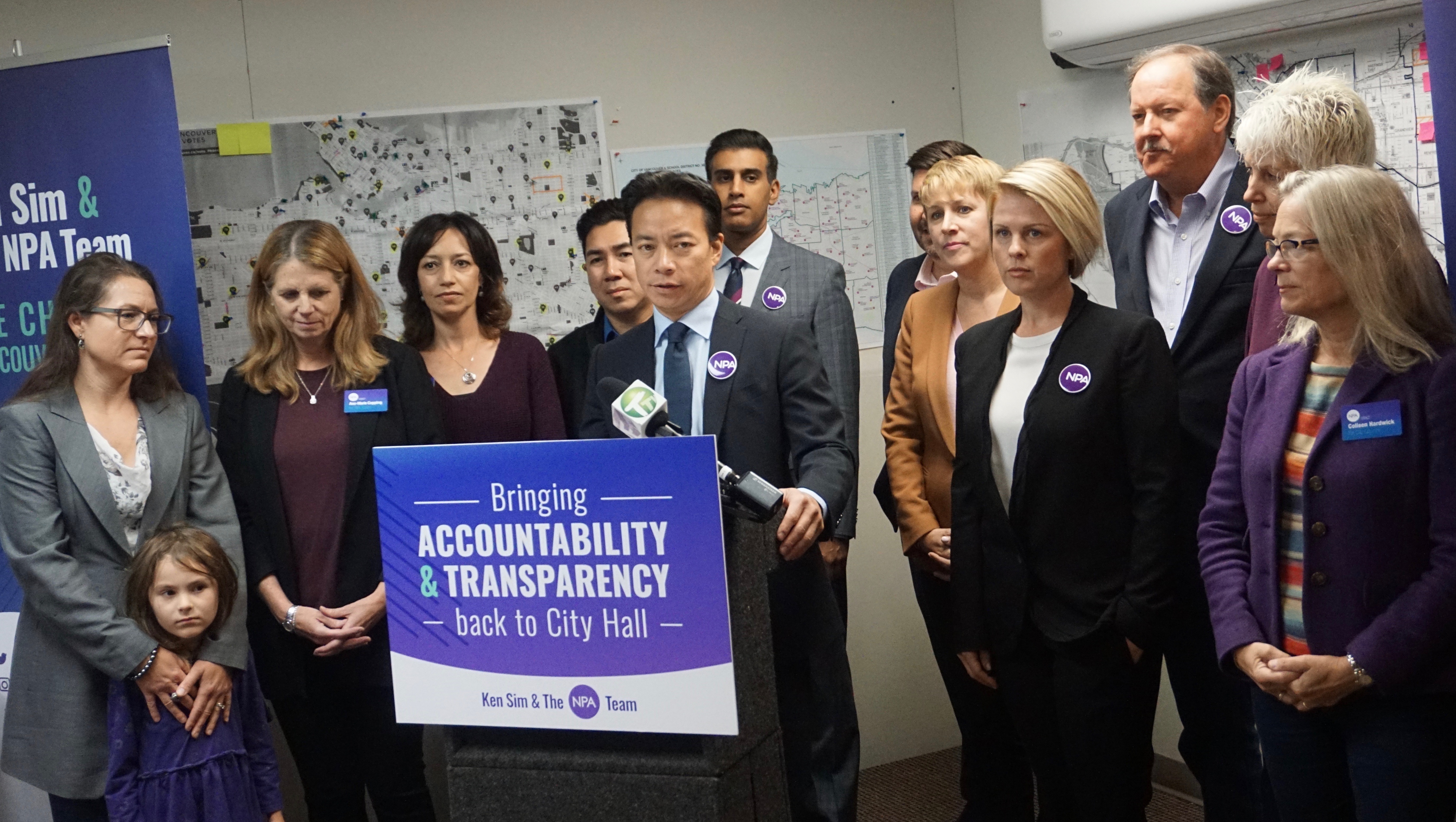
NPA mayoral hopeful Ken Sim and fellow candidates (Mackin)
The historic-first, random-order ballot features 21 candidates vying for mayor and a whopping 71 seeking the 10 city council seats.
The NPA should have simply waltzed-in to victory, after Robertson decided in January to retire at term-end. Vision’s third term was its most-difficult, as it lost talent and donors to the Trudeau Liberals and Horgan NDP. When it finally decided to pick a leader, Squamish Nation chief Ian Campbell eventually dropped-out during the last week of candidate registration after a stayed domestic violence charge from 2010 was revealed.
Sim is the mild-mannered seniors care and bagel franchising specialist backed by Lululemon founder Chip Wilson. Four women are the party’s best hope for city council: incumbent Melissa De Genova, School Board trustee Lisa Dominato, Park Board commissioner Sarah Kirby-Yung and Colleen Hardwick, a tech entrepreneur and ex-film producer. Hardwick’s late father was professor and alderman Walter Hardwick. Her grandmother Iris was the first woman elected to the Park Board. Colleen Hardwick has been a rare voice to question the wisdom of spending $3 billion on a SkyTrain subway to Arbutus instead of a light rail tram all the way to University of B.C. for the same price or less.
Sim, however, has three competitors for the mayor’s chair on the right side of the political spectrum. All formerly of the NPA, all with an axe to grind with the city’s oldest political party. Which begs the question: Are Yes Vancouver, Coalition Vancouver and Vancouver 1st running to gain power at city hall or are they running to defeat the NPA?
Lobbyist-cum-politician Hector Bremner took advantage of a left-wing split and low turnout to win a by-election council seat in fall 2017 for the NPA. The NPA board gave thumbs down to his mayoral bid after he opted to remain a full-time vice-president at the Pace Group lobbying and PR firm while acting as a part-time councillor. Bremner quit to form his own party, which copped its Yes Vancouver brand from a businesswomen’s charity.
Coalition Vancouver is ex-Conservative MP Wai Young’s populist vehicle that skews toward the Chinese community. She, too, was rebuffed by the NPA board, but earlier than Bremner. Her brash team markets an “anti-bike lanes, free parking, save the viaducts and clean-up parks” message to voters on the Westside and South Vancouver. Ex-NPA members Ken Charko and Glen Chernen are on the council ticket.
Jesse Johl’s Vancouver 1st found ex-West Vancouver Police spokesman Fred Harding in August to run for mayor. Ex-NPA member Johl resurrected Vancouver 1st just in time for the 2018 campaign. Harding, like Young, has focused on Chinese voters. He only got positive mainstream attention with a trial balloon promise to pursue franchises in the NBA and Major League Baseball. A video in which he criticized the province’s sexual orientation/gender identity guidelines, which are aimed at stopping bullying in schools, prompted school board candidate Tony Dong to quit the party.
Rob McDowell, a 2014 NPA council candidate rejected by Sim, and Erin Shum, a Park Board commissioner who quit the NPA caucus, are running as independents.
The NPA, however, has an $830,000-plus war chest. More than all of its competitors, combined. Will that translate into a winning get-out-the-vote operation and a return to power after a decade in the wilderness? Or sour grapes for the party with the logo that resembles a monogrammed grape?
Surrey at a turning point
In British Columbia’s second-biggest municipality, Surrey First’s reign is in jeopardy.
The slate founded by Dianne Watts was rocked when Linda Hepner changed her mind earlier this year and decided to call it quits after one term as mayor.
Councillors Bruce Hayne, Barb Steele and Dave Woods split to form their own party, Integrity Now, with Hayne as the mayoral candidate.
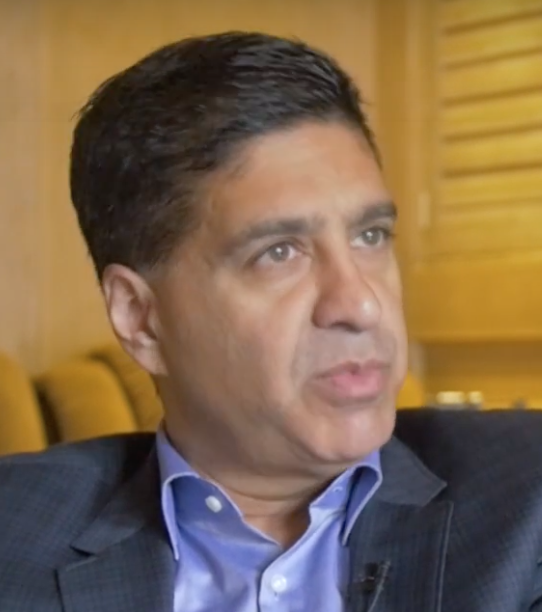
Surrey First’s Tom Gill
Doug McCallum, the mayor from 1996 to 2005, is trying again for a comeback with his Safe Surrey Coalition. He was runner-up in 2014.
Hepner passed the Surrey First leadership torch to Coun. Tom Gill, who is aiming to become the first South Asian mayor in a municipality where South Asians are one-third of the 518,000 population.
The election has been brimming with controversy. RCMP investigated voter fraud after a complaint from the anti-crime group Wake Up Surrey. Detectives found 67 of 73 mail-in ballot applications were fraudulent. Two persons of interest are under investigation. Police have yet to find evidence of vote-buying, but the probe is ongoing.
McCallum has set the tone, by framing the campaign as a SkyTrain vs. LRT race. He wants the more-expensive form of rapid transit, to connect with Langley; Gill favours building Surrey around trams. McCallum also wants to dump the RCMP and start a municipal force.
Gill opponents noticed when Ripudaman Singh Malik, the businessman acquitted of planning the Air India bombing in 1985, showed up at a Surrey First campaign event. Gill also faced criticism for passing on a question about crime reduction when it was his turn at a debate. He claimed afterward that he was suffering from low blood sugar, though he did remain on stage and answer questions after that round of the debate.
Surrey First’s secrecy rivals Vision Vancouver’s. In one instance, theBreaker attempted to access 10 internal audit reports from 2017. Instead of releasing the full reports, as the law says it must, Surrey city hall released mild, two-sentence summaries. Topics included reviews of accounts payable, cash handling, RCMP fleet management, and utilities billing.
Corrigan’s last stand?
In Burnaby, history could repeat on Oct. 20 if Mayor Derek Corrigan does not.
The Burnaby Citizens Association came to power in 1987 under fire chief Bill Copeland and it could be extinguished by a retired fire chief.
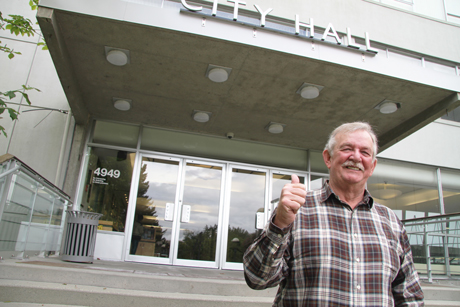
Five-term Burnaby Mayor Derek Corrigan (Facebook)
Challenger Mike Hurley came to Vancouver in 1983 from a town near Derry in Northern Ireland as a 25-year-old and became a firefighter five years later. Corrigan, who was elected to city council in 1987, has been mayor since 2002, one year less than Richmond’s Malcolm Brodie.
NDP stalwart Corrigan, who is also the head of the TransLink Mayors’ Council, has been roundly criticized for leading a one-party council that rubber-stamped luxury towers in Brentwood and Metrotown, many sold offshore, at the expense of older apartment buildings populated by working class renters.
Hurley said the city needs to slow down development and review its community planning.
“The average salary of people living in [Metrotown] is $47,500, 53% of the people in that area earn less than $47000,” Hurley said in an interview. “With just a singular focus on luxury condominiums that forced a lot of those people to move further out and, in turn, we’re losing a lot of our workforce. Now we’re starting to hear a lot of complaints from the business community that they’re having a hard time finding workers.”
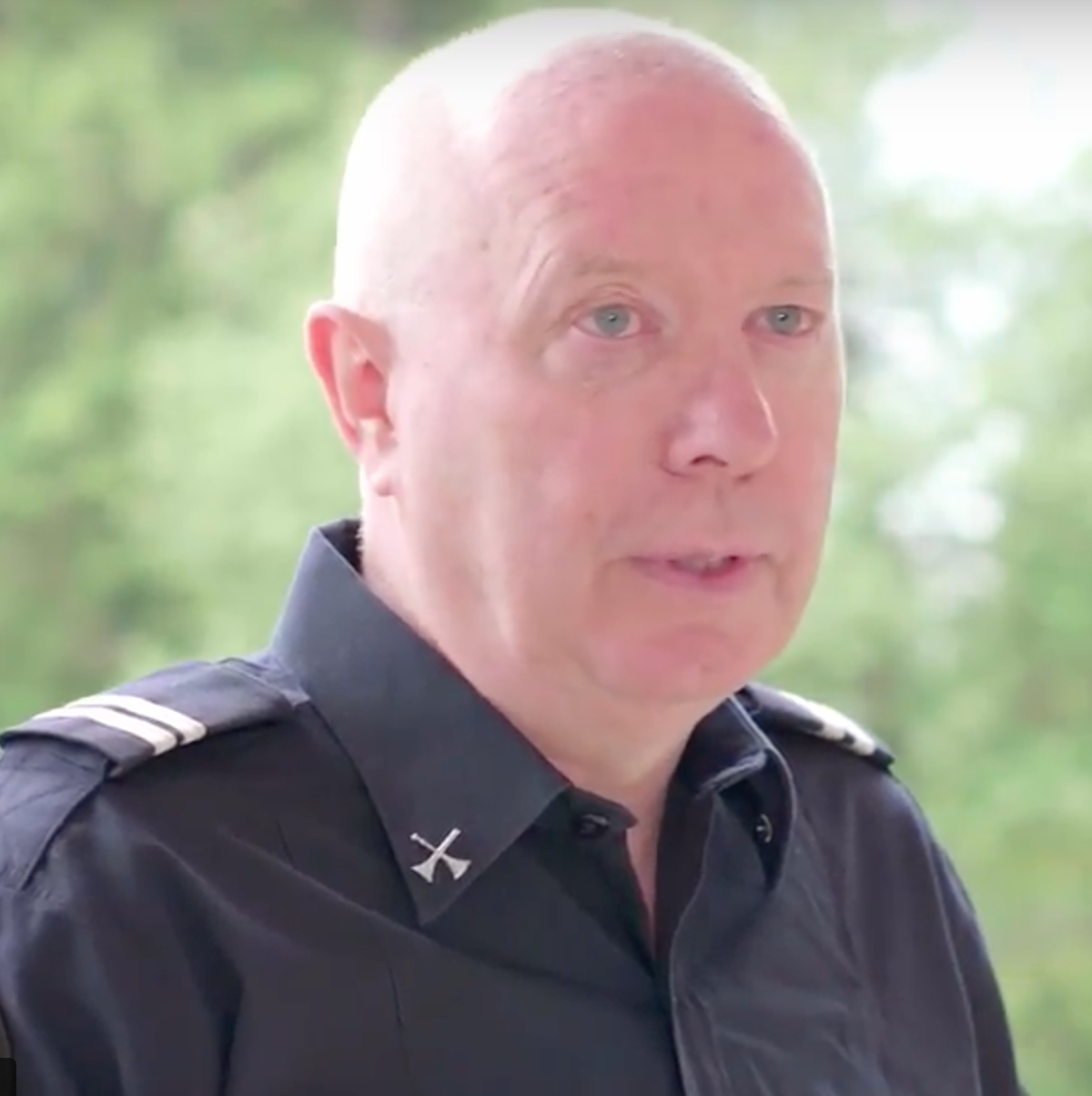
Burnaby mayoral challenger Mike Hurley
DOA’s Joe Keithley of the Green Party had originally intended to challenge Corrigan, but chose to endorse Hurley and run for a city council seat.
Hurley, who is endorsed by the New Westminster District Labour Council, said he has raised $200,000 since beginning his campaign five months ago. By comparison, theBreaker exclusively reported that BCA had $500,000 in its election account and $77,000 in a general account last November, just in time for the NDP’s campaign finance law that bans donations from companies and unions and caps individual donations at $1,200. In 2014, BCA spent almost $474,000 after it raised just over half-a-million dollars. A majority came from companies.
The battle of Burnaby is unique for another reason. Hurley hails from Magherafelt in Northern Ireland, where he grew up playing Gaelic football. Corrigan is the great-grandson of County Laois, Ireland, native James Corrigan.
“The Irish are always prepared to stand up for what they believe, I’m sure that’s what Mr. Corrigan is doing, that’s what I’m doing as well,” Hurley said. “We’ll see on Saturday which person of Irish descent will come out on top.”
“I believe I’ve lived through some very difficult times [in Northern Ireland]. We need to bring people together, all people together, to make sure we’re working in the interests of all the citizens in Burnaby. Unfortunately we seem to have lost the way a bit there as far as listening to the needs of all people in Burnaby, I hope to bring that back after the election.”
Support theBreaker.news for as low as $2 a month on Patreon. Find out how. Click here.






